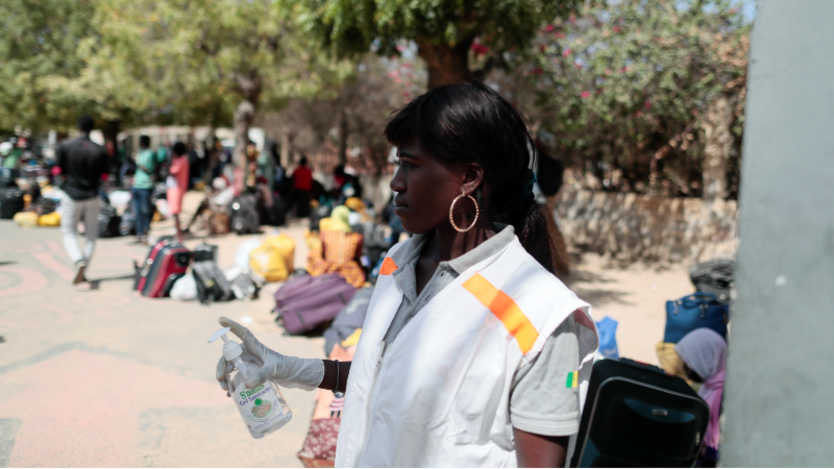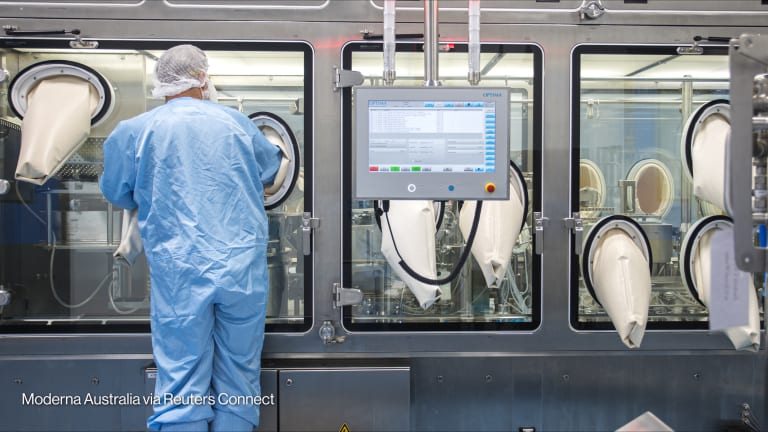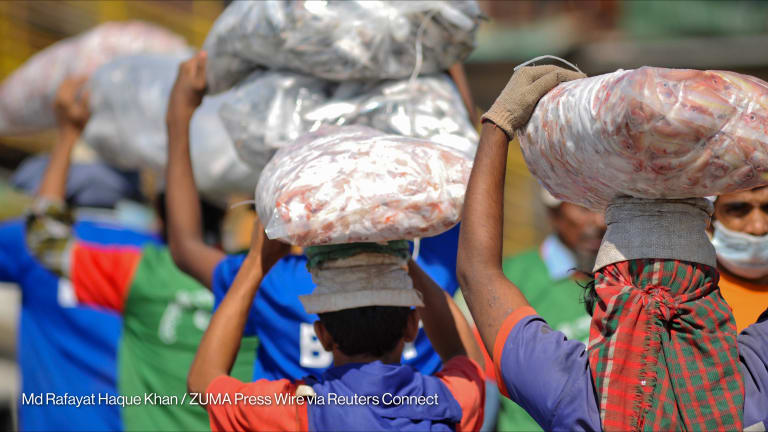
LONDON — U.K. aid is funding the effort to develop a rapid diagnostic test for COVID-19, which will be jointly manufactured in the United Kingdom and Senegal — a first for the African continent.
The developers told Devex they intend to sell the tests at cost, making them as affordable as possible, and that producing them in Senegal will make it cheaper and quicker to distribute them across Africa.
More on COVID-19:
► There's a new fund for COVID-19. Here's what you need to know.
► Will the private sector unite to fight COVID-19?
► Conference call: Preparing Africa for a coronavirus spread — the role of NGOs
“Ensuring access upfront to diagnostics is critical, especially for outbreak-prone epidemics,” said Joe Fitchett, medical director at Mologic, the U.K. company designing the kits. “By manufacturing in Africa there is an opportunity to ensure production is driven by demand and health need, rather than commercial return.”
While the pandemic has so far mostly affected the global north, there are widespread fears of the damage it could cause in lower-income countries.
“We made it very clear to the [British] prime minister … that this test will be made available at cost to low-income settings. No questions asked.”
— Joe Fitchett, medical director, MologicCurrent testing for COVID-19 requires laboratories, which are few and far between in low-income countries, and are not keeping up with demand even in better-resourced countries. The hope is that quick, easy-to-use diagnostic tests made in Senegal could ease the burden on local health systems if the outbreak on the continent worsens.
A prototype of the simple new testing system, which should give a diagnosis of COVID-19 within minutes as opposed to days, is said to be just weeks away from completion.
The test is being developed by Mologic, funded with £1 million ($1.2 million) from the U.K. government, and will be made in parallel with DiaTropix, an infectious disease testing facility founded by the Institut Pasteur of Dakar, in the Senegalese capital.
“Everything we do is as simple as possible,” Fitchett said. He told Devex the diagnostic kit will have two components: a saliva test and a low-volume blood test.
“It's a 10-minute test, it doesn’t need a lab or complex infrastructure, and the most important thing we are doing now upfront is designing this so it could be a self-test,” meaning you could use it anywhere, Fitchett said. “That gives us full flexibility, though we expect clinicians and nurses to be the ones using it first.”
Mologic’s co-founder, professor Paul Davis, was one of the inventors of the first home pregnancy test. The company’s main purpose is to manufacture affordable tests for neglected tropical diseases. The COVID-19 diagnostic test builds on Mologic’s biotechnology work in this field.
It should be available at cost in the U.K. and abroad. “We're aiming for less than £1 [per test],” Fitchett said. “We made it very clear to the [British] prime minister on Friday [on an official visit to the laboratory] that this test will be made available at cost to low-income settings. No questions asked.”
But the challenge for Mologic is not price — it will be producing enough tests to meet immediate and heavy demand. “We’re looking to acquire new manufacturing facilities in the U.K. and boosting our manufacturing capability in the interim,” Fitchett explained. “What we are doing is jointly manufacturing in Africa, in Senegal. That is the first time anyone has done that for an epidemic, let alone a fully regulated rapid test for diagnostics.”
DiaTropix is a new venture directed by Amadou Sall, a virologist at the Institut Pasteur of Dakar who previously directed the World Health Organization’s Collaborating Center for Arboviruses and Viral Haemorrhagic Fevers.
Like Mologic, DiaTropix works to provide testing for underserved diseases endemic in Africa, such as dengue. Its funders include the Mérieux Foundation, the Foundation for Innovative New Diagnostics, and the Institut de Recherche pour le Développement, a French public research institute.
Its staff have already undergone training with Mologic. Other issues remain before manufacturing can take off in Senegal, such as equipment validation and regulation of product batches, but Fitchett was confident the process would run smoothly.
Cheikh Tidiane Diagne, who manages the program at DiaTropix, said he isn’t anticipating any major challenges. “We are engaging with them [Mologic] from the beginning of the manufacturing … They are transferring standard operating procedures, and our regulatory team is working with them so we can see how to get the tests approved,” he said.
A “mirroring manufacturing” process with Mologic will see DiaTropix performing the same process at the same time, to begin producing prototypes in mid-April, Diagne said.
The project was welcomed by Prashant Yadav, visiting fellow at the Center for Global Development and an expert on global health supply chains.
“Building very long supply chains for testing has its own set of challenges, often economic and how quickly can you respond. So having shorter supply chains is useful and if they can do this in Senegal for Africa and [in the] U.K. for Europe, that would be my textbook ideal model of how to run a supply chain,” he said.
He added that the success of such a project in practice was largely dependent on having reliable infrastructure, such as an uninterrupted energy supply, and sufficient working capital. Development finance institutions could play a role in ensuring that the DiaTropix facility — and others like it — could stay properly financed.








